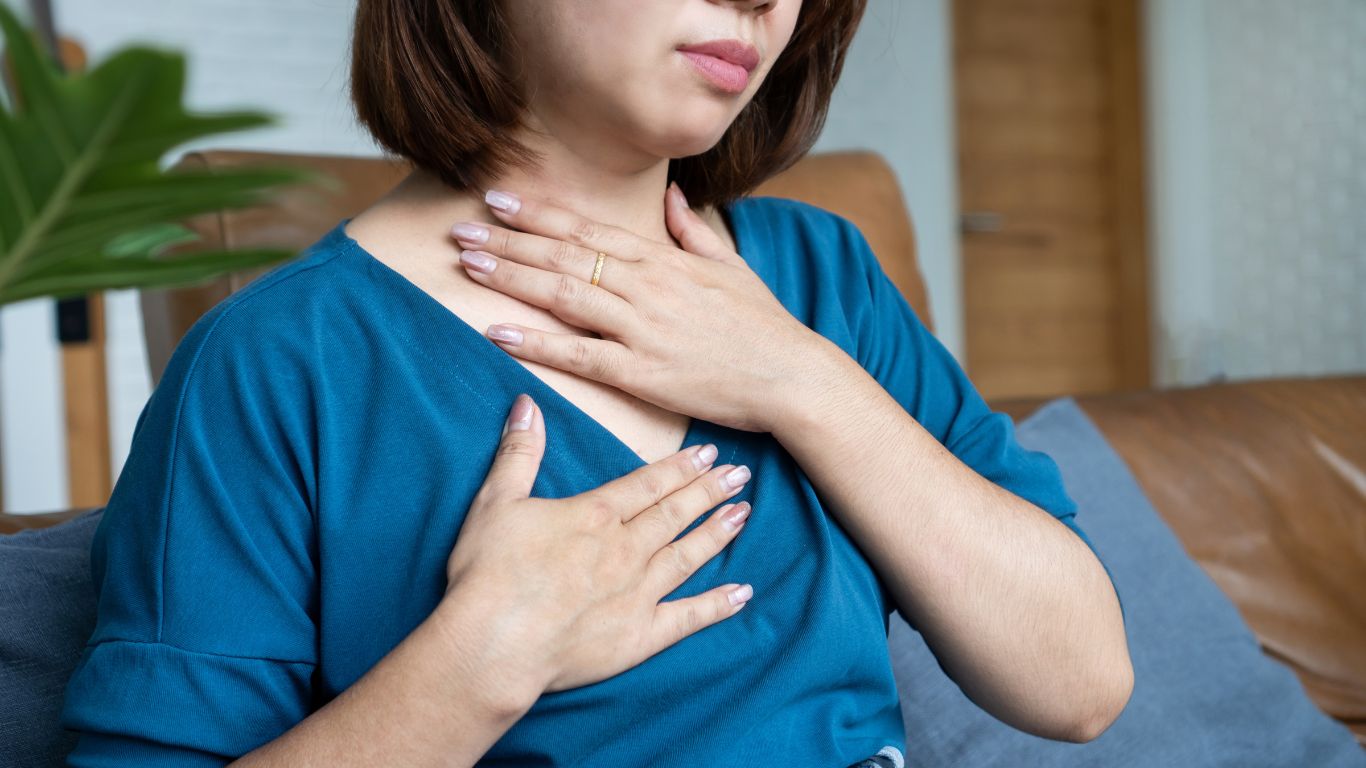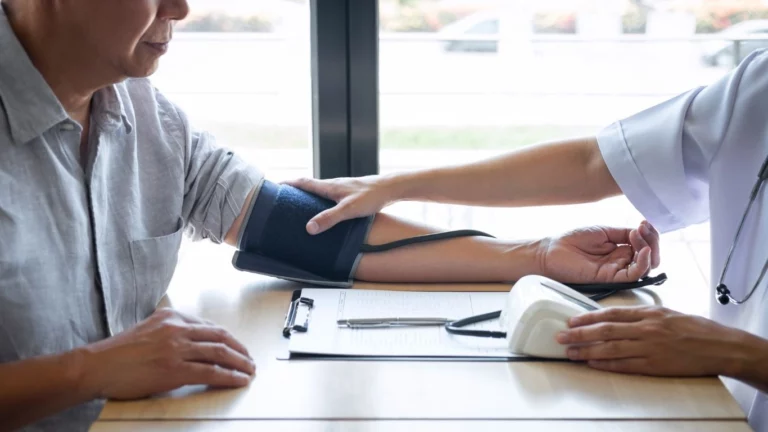How to Prevent GERD When Traveling: Effective Tips to Keep Reflux at Bay
Traveling is one of life’s great pleasures, but for those of us with GERD (Gastroesophageal Reflux Disease), it can be a real challenge. Trust me, I’ve been there. As a Medical Assistant working in a gastroenterology clinic, I’ve seen firsthand how GERD can disrupt people’s lives, especially when they’re away from home. Whether it’s indulging in different cuisines or long travel days, managing GERD while traveling requires some extra care and preparation. In this article, I’ll share practical tips and insights based on both my personal experience and my professional knowledge. So, if you’re wondering how to prevent GERD when traveling, you’re in the right place!
Understanding GERD: Why Travel Can Be a Trigger
Before we dive into the tips, it’s important to understand why traveling can exacerbate GERD symptoms. GERD is a chronic condition where stomach acid flows back into the esophagus, causing irritation. When you’re on the go, various factors can trigger or worsen these symptoms, including:
- Eating unfamiliar foods or indulging in rich, greasy meals.
- Changing your routine, including when and how often you eat.
- Dehydration from traveling long distances or through different time zones.
- Stress and anxiety from the excitement (or chaos) of traveling.
- Irregular sleep patterns and uncomfortable sleeping positions.
As you can see, traveling introduces multiple variables that can mess with your GERD management routine. But don’t worry, with the right precautions and a little planning, you can still enjoy your trips without letting GERD steal the show.
Tip #1: Choose Your Food Wisely
When traveling, food is often a big part of the experience. But as someone who deals with GERD, I’ve learned that certain foods can trigger symptoms, so it’s important to plan your meals accordingly. From my personal experience, some of the worst GERD flare-ups I’ve had happened after eating something I didn’t normally consume, like spicy street food or rich, creamy dishes that were way too heavy for my stomach.
So, what should you do? Start by sticking to foods that are known to be gentle on the stomach. These include:
- Lean proteins: Chicken, turkey, and fish are easy on the digestive system.
- Whole grains: Opt for oatmeal, brown rice, or whole wheat bread instead of refined carbs.
- Low-acid fruits: Bananas, melons, and apples (but steer clear of citrus fruits like oranges or grapefruits).
- Non-fat dairy: If you can tolerate it, low-fat or fat-free dairy options like yogurt can be soothing.
Also, avoid large meals or foods that are known to trigger GERD, such as:
- Fried or fatty foods
- Spicy dishes
- Caffeinated drinks
- Chocolate
- Alcoholic beverages
It’s tempting to dive into every new food experience while traveling, but making mindful choices can help you enjoy the trip without dealing with painful acid reflux later.
Staying Hydrated: The Secret Weapon

One of the easiest ways to prevent GERD flare-ups is by staying properly hydrated. Dehydration can actually worsen acid reflux, making it even harder for your stomach to manage its contents. I’ve noticed that when I don’t drink enough water during travel—especially if I’m flying or spending long hours in a car—my symptoms tend to flare up more. Keeping a water bottle with me at all times has been a lifesaver.
Also, remember that caffeinated drinks like coffee, tea, or sodas can increase stomach acid, so it’s best to avoid these if you can. Instead, opt for water, herbal teas, or coconut water to stay hydrated without aggravating your GERD symptoms.
Tip #2: Manage Stress and Anxiety

We all know that stress can take a toll on your body, but it’s especially true for people with GERD. When you’re stressed, your body produces more stomach acid, which can increase the likelihood of reflux. During travel, stress can come from various sources, like flight delays, missed connections, unfamiliar environments, or simply the anxiety of navigating a new place. So, it’s important to manage stress as best as you can.
Here are a few ways to reduce stress while traveling:
- Deep breathing exercises: Taking a few minutes to focus on your breath can help calm your nervous system and reduce anxiety.
- Mindfulness or meditation: Practicing mindfulness or meditation can help keep you grounded, even in hectic situations.
- Planning ahead: Organize your itinerary in advance to avoid the stress of last-minute decisions or running late.
- Take breaks: Schedule downtime to relax and recharge, even if it’s just for a few minutes.
When stress is under control, it’s much easier to manage GERD, and your trip will feel a lot more enjoyable!
Timing Your Meals: Don’t Skip Breakfast!

Another key factor in managing GERD while traveling is meal timing. It’s easy to skip meals or get off track when you’re exploring a new city, but not eating regularly can actually trigger GERD. In my experience, skipping breakfast, especially when I’m on vacation, has led to uncomfortable acid reflux later in the day. Not only is breakfast important for your overall health, but it’s also a great way to kickstart your metabolism and prevent hunger-induced acid reflux.
Aim to have small, balanced meals throughout the day instead of large, heavy ones. If you can, try to eat at least two hours before bedtime to allow your stomach time to digest before you lie down. And don’t forget to avoid eating too quickly—take your time to savor your meals!
How to Prevent GERD While Traveling: Your Travel Kit Essentials
Traveling can be unpredictable, and managing GERD in unfamiliar places can be tricky. But with a little preparation, you can reduce the chances of your GERD acting up. Over time, I’ve learned to keep a few essentials in my travel kit to make sure I’m ready for anything. These items help me stay on track with my diet and routine, no matter where I am.

1. Antacids and Medications: Your First Line of Defense
As someone who knows the discomfort of acid reflux all too well, I always make sure to pack antacids or over-the-counter medications like proton pump inhibitors (PPIs) or H2 blockers in my travel bag. Trust me, these can be a lifesaver when you feel a flare-up coming on, especially when you don’t have immediate access to your usual doctor or pharmacy.
Some of the medications I’ve personally used with success include:
- Antacids: Like Tums or Rolaids, these are great for providing quick relief if you feel heartburn creeping in.
- H2 blockers: Medications like Zantac or Pepcid work by reducing the amount of acid your stomach produces, which can be helpful if you know you’ll be in a situation where GERD is likely to flare up (like after a rich meal).
- Proton Pump Inhibitors (PPIs): For more severe cases, medications like Nexium or Prilosec can reduce stomach acid production over a longer period of time.
Make sure to consult your doctor before you travel to ensure you’re bringing the right medications for your symptoms. If you’re on prescription meds, double-check that you have enough to last your whole trip—and then some, just in case your plans change.
2. Digestive Enzymes: Helping Your Stomach Do Its Job
Digestive enzymes can be a real game-changer. While traveling, especially when you’re eating unfamiliar foods or meals that are heavier than what you typically eat, digestive enzymes help break down food more efficiently, making it easier on your stomach.
I’ve personally found that taking a digestive enzyme supplement before meals helps prevent bloating, indigestion, and even some of those uncomfortable GERD symptoms. Look for a product that includes a broad spectrum of enzymes, like amylase, protease, and lipase, to cover all your bases. It’s like giving your digestive system a little extra boost when it’s out of its usual rhythm!
Just like with medications, talk to your doctor or a nutritionist to determine if digestive enzymes are right for you. And don’t forget to stay hydrated while using them—water is essential to help the enzymes work effectively.
Choose Your Accommodations Wisely: Sleep is Essential

Another aspect of traveling that can impact GERD is where you stay. I’ve learned the hard way that sleeping in a bed that’s too flat or in a position that isn’t ideal can lead to uncomfortable nights and worsen GERD symptoms. Elevating your head slightly can help prevent acid reflux while you sleep, allowing gravity to keep stomach acid where it belongs: in your stomach.
If you can, choose a hotel or rental property that provides an adjustable bed or at least a pillow that allows you to prop your head up. If you’re traveling somewhere and the accommodation doesn’t offer that, you can always improvise with extra pillows. In a pinch, even folding a towel and placing it under the head of the bed can provide a slight incline to help prevent reflux during the night.
Additionally, if you’re traveling by car or plane, it’s a good idea to bring a small travel pillow to support your neck and elevate your head, especially if you plan to take naps along the way. I’ve personally found this makes a huge difference in how my body handles the long hours of travel. Plus, sleeping upright or at an incline can also reduce the chances of acid creeping up your esophagus after meals.
3. Maintain Your Normal Routine as Much as Possible
One of the most important things I’ve learned when managing GERD during travel is to try to maintain a routine as much as possible. Sure, vacations and work trips can throw your usual rhythm out the window, but sticking to certain habits can help you avoid GERD flare-ups.
For example, I always try to wake up around the same time every day, even while traveling, to keep my internal clock on track. This helps regulate my digestion and keeps my stomach on a predictable schedule. If you’re in a different time zone, this might mean adjusting slowly before your trip or giving yourself a day or two to acclimate.
Additionally, try to avoid the temptation to eat at irregular hours. While it might be easy to grab a late-night snack while out on the town, I’ve found that late meals can trigger GERD flare-ups. Stick to a breakfast, lunch, and dinner schedule as best as you can, and keep snacks to a minimum unless they’re GERD-friendly options, like a small handful of almonds or a piece of non-acidic fruit.
Exercise and Activity: Keep Moving, But Be Smart

Exercise is another aspect that can either help or hinder GERD symptoms while traveling. Staying active is important for overall health and digestion, but vigorous activity right after eating can make things worse. I’ve learned that it’s best to wait at least two hours after eating before jumping into any intense workouts or activities. If I want to get moving right away, I’ll stick to light activities, like walking or stretching, which help keep things flowing without putting pressure on my stomach.
For example, when I’m in a new city, I love walking around to explore—just a leisurely stroll after lunch or dinner. Not only does this help digestion, but it also gives me the chance to see the sights without risking an uncomfortable acid reflux episode.
If you’re planning to hit the gym or do something more strenuous, keep in mind that high-impact exercises like running or heavy lifting can trigger GERD symptoms if done too soon after eating. Listen to your body, and if you feel the need to take it easy, that’s okay! There’s no harm in enjoying your trip at a slower pace when your health is a priority.
Dealing with GERD While Traveling: The Power of Mindful Eating
As we continue navigating the challenges of managing GERD while traveling, one area that has proven to make a huge difference in my own life is mindful eating. Over the years, I’ve discovered that eating with awareness and intention can help prevent uncomfortable flare-ups, even when you’re in unfamiliar places.
Mindful eating means paying attention to how you eat, not just what you eat. It’s about savoring each bite and being aware of your body’s hunger cues and fullness signals. If you’re someone who tends to eat on the go—perhaps rushing through meals during your travels—it’s time to slow down. Trust me, I used to be guilty of this, especially during hectic trips. But once I started being more mindful of my eating habits, I noticed fewer GERD episodes and a more enjoyable travel experience overall.
1. Chew Slowly and Thoroughly
One of the simplest yet most effective strategies for preventing GERD flare-ups is to chew your food slowly and thoroughly. I know, it sounds so basic, but it truly makes a difference. When we rush through meals, we don’t give our digestive system enough time to process the food, which can lead to bloating, indigestion, and even acid reflux.
When traveling, I try to remind myself to take my time with every bite. In fact, I often challenge myself to put down my fork between bites. It’s not about being slow just for the sake of it—it’s about allowing your stomach to catch up with the process, ensuring that your food is well-digested before moving on to the next bite. The result? Less stomach acid production and a smoother digestion process. It’s also a great way to truly enjoy your meals and be present in the moment, instead of just mindlessly scarfing down food while distracted by the sights and sounds around you.
2. Take Small Bites and Avoid Overeating
Overeating is one of the most common triggers of GERD. And while it’s easy to fall into the trap of wanting to eat everything in sight when you’re on vacation, portion control is key. I’ve learned to take smaller portions and avoid stuffing myself just because I’m in a new place with exciting food options.
When you travel, try asking for smaller portions or splitting meals with a friend or family member. In many restaurants, I’ve found that the portions are huge, and it’s easy to end up eating more than your stomach can handle. Taking smaller bites and savoring each one can also help prevent overeating. Plus, if you eat smaller meals throughout the day, your digestive system will be less overwhelmed, and you’ll be less likely to experience acid reflux.
Managing GERD on the Road: Packing the Right Snacks

When you’re traveling, having the right snacks on hand is crucial. It’s easy to get caught up in the excitement of sightseeing and forget about your GERD-friendly diet, only to find yourself hungry and reaching for the nearest fast food option. To avoid this, I always pack snacks that are gentle on my stomach.
Some of my favorite go-to snacks include:
- Almonds: A small handful of unsalted almonds is a great option for a quick, GERD-friendly snack. They’re not only soothing but also provide a nice balance of protein and healthy fats.
- Oatmeal: I love oatmeal for its fiber content and its ability to absorb stomach acid. Whether I’m traveling by car or on a plane, I can always find a way to prepare or pick up a small bowl of oatmeal.
- Rice cakes: Plain rice cakes are light, easy to pack, and unlikely to cause any GERD symptoms. They’re also a good base for adding other GERD-friendly toppings, like a bit of almond butter or banana slices.
- Bananas: Bananas are a GERD-friendly fruit that’s easy to carry around, and they help neutralize stomach acid. I make sure to pack a couple in my bag for when I need a quick snack.
- Carrot sticks or cucumber slices: These veggies are low in acidity and great for munching on while you’re on the go. They’re crunchy, hydrating, and perfect for a light snack.
By having these options available, I never find myself scrambling to find something that’s safe for my GERD, and I can continue enjoying my trip without worrying about what I’m eating between meals.
Despite our best efforts, there may be times when GERD flare-ups are unavoidable—especially during travel. For example, maybe you ate something that slipped through the cracks, or perhaps the stress of a long flight triggered your symptoms. While it’s never fun, I’ve learned that knowing what to do in these moments can help manage the discomfort more effectively.
Here are some steps that I personally take when GERD strikes:
- Stay calm: Stress can make GERD worse, so the first step is to take a deep breath and try to relax. Remind yourself that you’ve managed this before, and you’ll get through it.
- Use your medications: If you’ve packed antacids or your GERD medication, take them as directed to help neutralize the acid and reduce the burning sensation. I always carry a small bottle of antacid tablets in my purse for quick relief.
- Elevate your head: If you’re lying down, prop your head up with a pillow or two. This helps reduce acid reflux, especially if it’s late at night or if you’re trying to rest.
- Drink water: A glass of water can help dilute stomach acid and ease symptoms. I also recommend sipping on water throughout the day to stay hydrated, as dehydration can worsen GERD symptoms.
- Eat a small, soothing snack: Sometimes, a light snack like a few crackers or some bananas can help settle your stomach. Avoid greasy or spicy foods if you’re dealing with a flare-up.
References
For more information on GERD management, you can check out trusted sources such as Health Usias for articles and resources. It’s always a good idea to stay informed, especially if you’re planning on traveling with a condition like GERD. Having reliable resources at your fingertips can make managing symptoms much easier.
Disclaimer
The information provided in this article is based on my personal experiences as well as general advice for managing GERD. It should not be considered medical advice. Always consult with your healthcare provider before making any significant changes to your diet or treatment plan. GERD management can vary from person to person, and what works for one individual may not work for another. Your doctor is the best resource for tailored recommendations.

Camellia Wulansari is a dedicated Medical Assistant at a local clinic and a passionate health writer at Healthusias.com. With years of hands-on experience in patient care and a deep interest in preventive medicine, she bridges the gap between clinical knowledge and accessible health information. Camellia specializes in writing about digestive health, chronic conditions like GERD and hypertension, respiratory issues, and autoimmune diseases, aiming to empower readers with practical, easy-to-understand insights. When she’s not assisting patients or writing, you’ll find her enjoying quiet mornings with coffee and a medical journal in hand—or jamming to her favorite metal band, Lamb of God.







